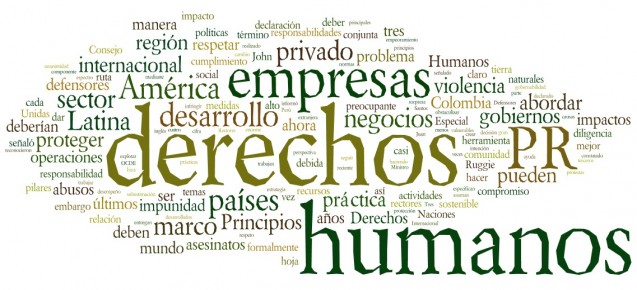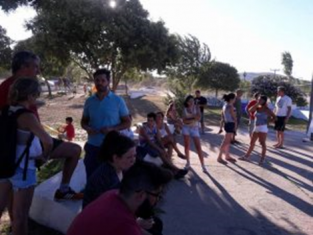The Bank Group of Thun published a document about the implications of the UN Guiding Principles for corporate and investment banking. A group of civil society organizations publicly criticise these statements.
“Below, we offer a google translate version of the original article in Spanish. This translation may not be accurate but serves as a general presentation of the article. For more accurate information, please switch to the Spanish version of the website. In addition, feel free to directly contact in English the person mentioned at the bottom of this article with regards to this topic.”
Faced with the risks involved in the Thun Group document, a group of civil society organizations issued an open letter criticizing many of the issues raised in that document. We signed the letter 34 academic and civil society organizations from 17 countries, including BankTrack, SOMO, Oxfam, Greenpeace, Global Witness and OECD Watch.
The Thun Group document develops a conceptual framework for the implementation of the Guiding Principles on Transnational Corporations and Human Rights for banks in a context of corporate and investment banking. This document misrepresents principle 13.
The letter requests that the Thun Group demonstrate that it is prepared to participate in the OECD Proactive Agenda Project in good faith by amending the document they have issued and making it clear that it recognizes and respects the advice of the Office of the High Commissioner for United Nations for Human Rights.
The guiding principles are a set of guidelines agreed upon by the international community as a guideline that guides both States in their work to protect human rights and companies in their duty to respect them. This work was led by Professor Ruggie. These principles were adopted unanimously in 2011 by the United Nations Human Rights Council.
In this context, on 21 February, Professor Ruggie of Harvard responded strongly to the Thun Group document. He is “deeply concerned” by the document and raises similar points to those of the open letter. “They can undermine attempts by banks and others to fulfill their responsibility to respect human rights.” In addition, he adds that:
“It is a good example that a group of large banks are doing important work on the application of UNGPs to their sector. But I am afraid that misinterpretation of the basic elements of UNGPs and their implications in this document can seriously damage I would urge the Group to reflect on these issues and consider the possibility of issuing a future document more in line with the basic elements of the UNGPs.”
On 23 February, the coordinator of the United Nations Working Group promoting the implementation of the Guiding Principles for Business and Human Rights also responded by inviting Thun Group banks to review the document “to align it with UNGPs” The Working Group considers that the discussion paper offers some useful practical considerations for banks in certain situations where they may be directly linked to the effects of human rights through the financial products or services they provide to third parties , Which may contribute or cause a human rights conflict abuse.
“The efforts of the Thun Group to explore the practical implications of the UNGPs are welcome … However, these instruments of practice that seek to interpret the meaning of UNGPs in a sector-specific context should be subject to a consultation process And review by other stakeholders in order to ensure accuracy, soundness and legitimacy. “
The Working Group believes that if not addressed, this can cause unnecessary confusion on UNGPs, which may undermine attempts by banks and others to fulfill their responsibility to respect human rights. It should be noted that the discussion paper of the Thun Group was approved by Barclays, BBVA, BNP Paribas, Credit Suisse AG, Deutsche Bank, ING, JPMorgan, RBS, Standard Chartered, UBS Group AG and UniCredit.
On 28 February Christian Leitz on behalf of the Thun Group responded to the CSO group, Professor John Ruggie and the UN Working Group. He claims to be trying to generate a constructive discussion between banks and other interested parties but has not indicated any willingness to revise the document. And it hopes to continue with stakeholders in upcoming multi-stakeholder forums by discussing the document.
A meeting open to all signatories of the letter is scheduled for 19 June where a broader dialogue with the Thun Group will take place. Professor Ruggie has said he will consider participating in this meeting if they retracted the premise that banks can not contribute to damage through their relationships with customers.
In the counter response, civil society organizations express two concerns about the June meeting. On the one hand, define a stakeholder engagement strategy as promised by the Thun Group at its last public meeting. And secondly, that you withdraw and reconsider your recent document.
From FUNDEPS we follow this process and we expect a change in the response that has given the Thun Group. The Guiding Principles on Transnational Corporations and Human Rights were created to “protect, respect and remedy” human rights, and we expect cooperation from states, private sectors and civil society to fulfill their commitments.
More information
Leading banks under fire for misrepresenting human rights responsibilities
Contact
Victoria Gerbaldo / Encargada de Proyectos del Área de Gobernabilidad Global


